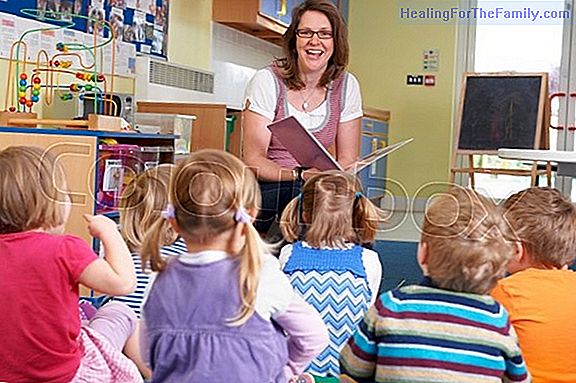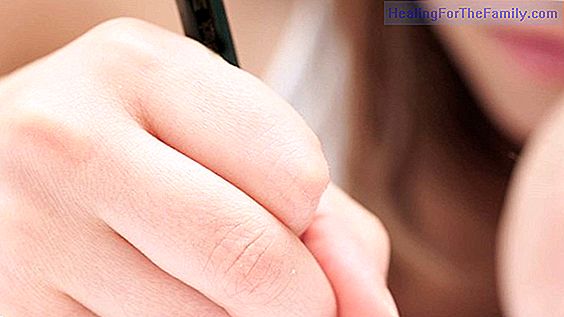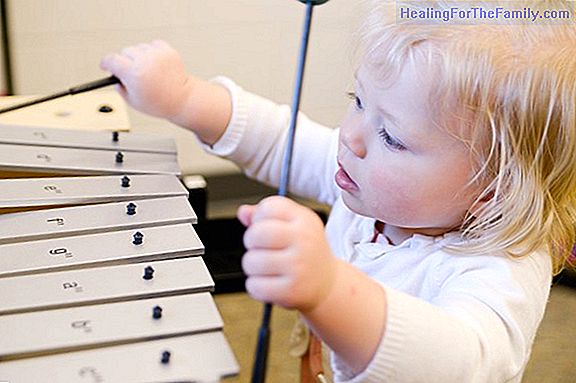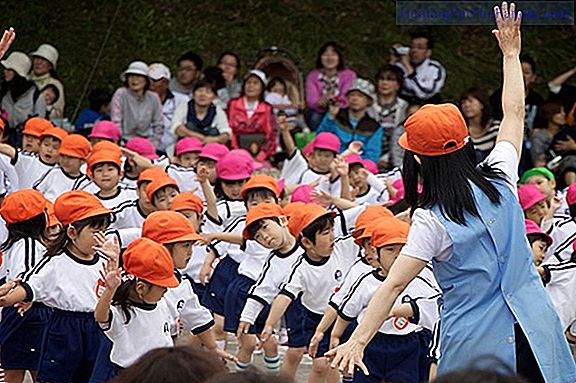Children of 5 years who still do not pronounce well
It is common that when children begin to speak they have a "rag tongue", they do not pronounce words well, only their parents understand them (and sometimes not even that), but little little by little, this is disappearing and his speech is becoming more understandable. There are sounds, (phonemes)
It is common that when children begin to speak they have a "rag tongue", they do not pronounce words well, only their parents understand them (and sometimes not even that), but little little by little, this is disappearing and his speech is becoming more understandable.
There are sounds, (phonemes) that are more complicated than others, and take longer to acquire or pronounce correctly, such as R, RR, or S. And certain grammatical structures are acquired later than others. But, what about children 5 years and older who still do not pronounce well? Problems of pronunciation in children of 5 years or more
Problems or difficulties in the articulation and organization of speech are normal and evolutive up to a certain age, and although each child is a world and each one takes its own rhythm,
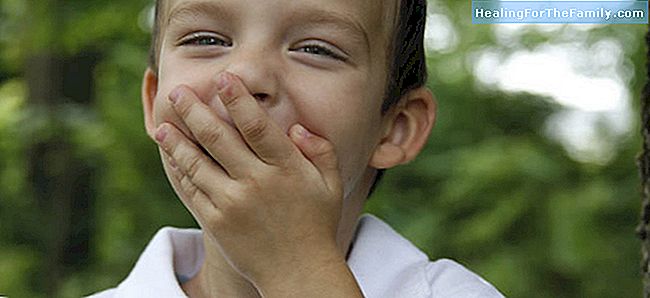
if from 4-5 years those problems persist, we must go to a specialist in Speech Therapy to assess, evaluate and treat language problems in the child. For there to be an adequate phonological development in the child, we must take into account that the child has an adequate physical development of the articulatory mechanisms for the production of speech sounds and a development of auditory perception of sound differences . That is, hearing problems, or problems in the articulatory organs of speech, (tongue, palate, ...) can lead to difficulties or problems in the pronunciation of speech sounds.
Problems in the pronunciation of the sounds of the language, is what is known as dyslalia
and we can speak of evolutionary, functional or audiological dyslalia: - Up to 4 years, it is normal that children do not pronounce certain sounds well, is what is known as
dislalia evolutionary which are those dyslalias, which occur in children during the phase of language development, due to an inadequate development of their fonoarticulatory device but which disappear as the child acquires the ability to Repeat correctly by imitation the words you hear.-
Functional dyslalia is one in which the child does not use the articulatory organs correctly when he has to pronounce a phoneme, (he does not place the tongue in the correct position for example). You can omit, replace, distort or insert the phoneme. -
The audiological dyslalia in which the child does not articulate correctly due to hearing loss (in different degrees). Errors that are observed in children with pronunciation problems
- Lisp: / s / by / z /: "hunting" by "home".
- Seseo: / z / por / s /: "sapato" for "shoe".
- Replacement of / f / with / p / o / z /.
- Substitution of / k / by / t /.
- Rotacism: "gomper" for "breaking".
- Nasalization: / d / by / n /, "animina" by "guess".
- Deaf consonants sounding / g / for / k /, "gauze" for "house".
- Problems of anticipation, saying "get dressed" by "take off".
- Duplication, "dififil" for "difficult".
- Substitution or assimilation of one phoneme by another. For example, / t / by / s /.
- Alteration of the order of the phonemes, for example "tonicias" by "news".
- Alteration of the syllabic order, such as pronouncing "telófono".
When we should go to a specialist if the child does not pronounce well
Therefore, a child with 4 years of age does not correctly pronounce the R would not be a problem, but if at 5 he continues to pronounce badly, then we should consult a specialist, in this case, the speech therapist is the one who can assess if there is a problem or is something evolutionary and who is going to carry out the appropriate intervention for the recovery of each sound of the language and can guide us towards the best intervention for our little one.
We can say that after 5 years, if the child continues talking with a rag tongue and it is hard for us to understand what he says or mispronounces some sounds of the language, he may present a dyslalia and we will have to intervene for his treatment.
There are organic problems that we must rule out, such as palate or frenulum problems, which are organic problems that are usually detected soon that will require speech therapy treatment. Children with frequent otitis or hearing loss can also present speech problems by not adequately discriminating the sounds of the language, making it a "risk factor" in pronunciation problems.
It is important to intervene as soon as possible, since problems in the language can lead to problems in the learning of reading and writing, so that the sooner we work on these problems, the better the prognosis and the less impact on later learning.
What to do if the child of 5 years or more does not pronounce well
It is important that parents serve as models in the language of our children, and although we are not going to do speech therapists, there are certain things that we must take into account:
-
Do not promote the "infantilized" language of the child (if the 4 year old says "tetota" instead of ball, we should not use that word, but the correct one, even if it seems funny to us)-
Do not pressure the child or demand an adequate pronunciation . Give him the correct model but without demanding that he pronounce it, (if he tells us the petota, say "ahh ... I want the ball", but without requiring him to repeat it properly).-
Avoid telling the child "this is not said", or "is wrong", or "as I do not understand you I do not pay attention" as we said before, I give the correct model but without "scolding". Aunque - Although it does not seem important to us, the use of pacifiers or bottles beyond two years
of age can be a problem when it comes to pronouncing the small ones, since they can hinder the correct development of the articulatory organs. - Likewise, feeding is important, since chewing is part of the exercise of the muscles involved in speech
. Continue with elements that do not help to enhance them (baby food, puree, give them all soft) can lead to subsequent repercussions in the realization of the movements necessary to make the sounds.

